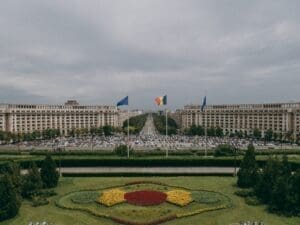Romanian citizenship: Are descendants of Romanians born before 1918 eligible?
This article discusses the issue of eligibility for Romanian citizenship within the 1918 borders. In that year the Romanian borders changed as a consequence of World War I – which in effect created a new European map of countries with new borders.
Our offices in Tel Aviv and Jerusalem assist people in obtaining Romanian citizenship. Our experts will help you find out whether you are eligible for the citizenship or not. In addition, we maintain contact with attorneys in Romania who assist us in locating documents of former Romanian citizens.

Obtaining Romanian citizenship
The state of Romania was officially founded in the year 1878, as a result of the unification of several local principalities known as Moldova, Wallachia and Transylvania. Immediately upon its foundation, thousands of Jews began leaving the country due to anti-Semitic acts that erupted all at once after years of prolonged restraint (the Kishinev pogrom, which took place at the same time, was part of the same large wave).
The surge of Jews leaving the country continued into the beginning of the 20th century. Thousands of Jews immigrated to Western Europe or to the New World, while a minority of them chose to come to the land of Israel and build the first Jewish colonies.
Romania’s journey through the early 20th century – At the beginning of the 20th century, the countries of Europe embarked on a series of conflicts that eventually erupted in World War I. In the first years of the war Romania remained neutral. However, after the Allies promised to grant the country additional territories, populated by Romanians, if it joined the war effort, it decided to enter the war. As a result, the territory of the country increased significantly.
How does this apply to you?
The changing of the Romanian borders also affected the large Jewish population that lived in Romania in the early 20th century. Thus, for example, if your ancestors’ home remained on Romanian territory after World War I and they became or continued to be Romanian citizens after 1918, you are eligible for Romanian citizenship. If those same ancestors did not forfeit their citizenship when they left Romania (a common occurrence), you can reclaim the citizenship.
After World War I, the Romanian borders were expanded to include regions that had previously belonged to the country only partially or not at all. These include six regions west of the Dnieper river: Transylvania, Bessarabia, Bukovina, Maramures, Banat and Crisana. If your ancestors lived in any of these areas after 1918 and were Romanian citizens – you are also eligible for a Romanian passport.
At its height, the Romanian kingdom extended across more territory than it does today. With these territories included, the country was known as “Greater Romania”, an entity which existed from 1918 to 1940.
What to do if your ancestors were born in “Greater Romania” before the year 1918
If your ancestors were born in the territories of “Greater Romania” before 1918, it is still possible to submit an application for citizenship. However, unlike other cases, the application in such a case will be examined in detail by the Romanian authorities. It is important to note that people who were born in the territories of Greater Romania before 1918 were not yet Romanian citizens (in the vast majority of cases). Due to this uncertainty in their status, Romanian authorities consider each such citizenship application carefully before deciding whether granting the applicant citizenship is in the Romanian national interest.
What can be done in a case where a great-grandparent was born in Greater Romania, but today their city of birth is located within the borders of Hungary or the Ukraine?
In this case a citizen application can be submitted, as Romania recognizes the descendants of its former citizens as eligible for citizenship. In order to meet the conditions set by the Romanian legislature, you will be required to present an official document proving the Romanian connection of the original bearer of Romanian citizenship. Such a document could be a birth certificate, a Certificate of Exile, a marriage certificate, an old passport, or any other document that proves that your great-grandparent had a civilian connection to Romania.
What can I do if I do not possess any formal document of my grandparent’s?
In this case, a manual search for a document will be required in the Romanian archives. The search will cover documents, photographs or other evidence that proves to the Romanian authorities that your family had a Romanian connection. Note that search process requires additional effort and therefore raises the price of the legal process. In addition, you will be required to present legal proof of connection between you and the grandparent.
Romanian citizenship within 1918 borders – contact us
You can obtain a Romanian passport with the help of our offices. To avoid needless rejections and distress, it is recommended to seek the assistance of an experienced professional who can guide you and provide the most accurate information about obtaining a Romanian passport. For more information on Romanian citizenship see this article on our site.
מאמרים מומלצים



